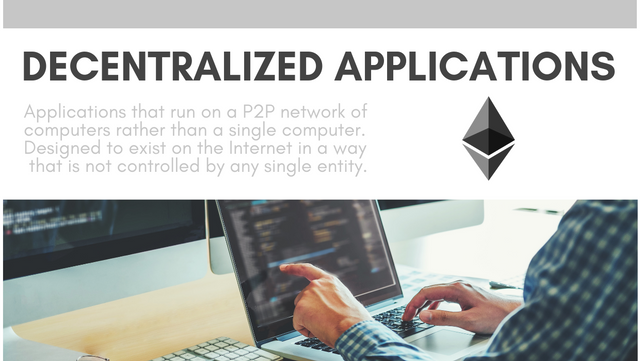
Now that 2018 bear market has resulted in billions lost, investors have become wary of the overall Cryptocurrency landscape, with many stating that popular digital currencies such as Bitcoin, are nothing more than a ‘’fad, that will not withstand the test of time’’.
Bitcoin naysayers are proudly proclaiming that the entire Blockchain industry is nothing but a delusional dream, as the nascent technology struggles to gain mainstream adoption or acceptance. Many, fail to understand that blockchain actually consists of a set of technologies, not a single product or an industry. It doesn’t help the fact that startups are promising to disrupt a particular industry, with claims of being at the birk of a digital revolution- this is the main reason as to why there is a big misconception surrounding the idea that Blockchain technology itself, represents an industry.
Indeed, blockchain is an underlying technology that empowers Cryptocurrencies today - taking Bitcoin’s protocol as an example, we can pinpoint that there is an element of distributed computing and governance.
But let’s be more precise, Blockchain itself is a result of a collection of technologies: distributed computing, cryptography, Merkle trees or hashing - these existed long before Bitcoin came into existence in 2009.
So what’s next for Blockchain Technology?
During the bull run of 2017, cryptocurrency enthusiasts were the cause behind much of the hype, that led to Blockchain being labeled as upcoming ‘’disruptive technology’’, that no matter what industry you’re working in, there is a possibility of that sector benefiting from DLT. Essentially, we had a brand new technology that is meant to disrupt and revolutionize certain processes, leading to greater efficiency, reduced costs and improved functionality.
Experts who saw through this speculation at the height of the Market, were quick to note that Blockchain has not even remotely, come close to mainstream adoption. With over thousands of different Cryptocurrencies available on the marketplace, investors and stakeholders should remain wary whenever a bold claim involving the word ‘’disruption’’.
Let’s assume that Blockchain technology will not be labeled as an independent industry but rather revolutionary technology that has the power to disrupt existings industry. Here are some examples, where Blockchain acts as part of a collection of technologies that, when combined, serves to provide a full-spectrum of services.
.png)
Enterprise Blockchain
Aergo, a project that looks to establish a bridge between Public & Private blockchain features an Enterprise-focused hybrid solution, catered specifically to the needs of businesses. Applying Blockchain technology to help streamline commercial services by using distributed technology to reduce cost, offer greater transparency and provide hybrid architecture, that support large-scale operations. The project envisions a future where among-st Enterprises, Blockchain is adopted to specifically streamline certain processes in a more efficient and effective manner. The intermingling of public and private ledgers has emerged as a key narrative in enterprise blockchain, thus Aergo alongside Blocko is offering a Blockchain-as-a-service that lets businesses adopt an array of enterprise blockchain tools. A company choose to interact with an open source and public network, while deploying its own private blockchain architecture.

Decentralized Applications & Network
Ethereum, is the world’s most popular platform for deploying smart contracts and dApps, that has become a haven for Developers, who seek to build applications on top of a distributed network. Despite using a relatively new programming language, Solidity, the project manages to attract a wide variety of talents, who build innovative services on top of Ethereum’s network. Luring thousands of developers to its platform, a majority of today's custom-tailored solutions are coming alive & deployed on top of Ethereum. Now, there are over thousands of different applications that utilize Ethereum network and Consortium known as the EEA, have begun forming strategic alliances with existing institutions, companies and businesses to build applications on top Ethereum's network. The idea is based on advancing to use the ethereum mainnet as a kind of decentralized middleware or message bus, allowing companies to interact peer-to-peer but keeping a common frame of reference.

Financial Payment Protocol
Ripple, the all-in-one enterprise payment solution tailored to the needs of Banks, financial institutions and remittance services. Despite, XRP having few use-cases (Ripple’s own currency), it was designed to be used in conjunction with RippleNet - a network of Financial payment-providers. The team behind Ripple are merely using DLT to improve on existing financial services by leveraging the technology to not only cut out the middleman but offer an alternative payment ecosystem, that facilitates the transfer of value. Blockchain is applied in this instance to allow parties a frictionless experience when it comes to sending money globally.
Let’s consider Blockchain a revolutionary tool that, when integrated or implemented for a particular process, offers a wide-variety of use-cases. When applied in a proper manner, DLT does have the potential to disrupt an industry, especially in a sector where decentralization provides clear benefits. Over time businesses of all sizes will begin to recognize the efficiencies of Blockchain technology and harness the concept to power their existing systems.
The good news is that the ability to harness the concept of Blockchain will be possible thanks to the tools and resources being created by projects. The question will be whether these applications will disrupt the current “status quo” or merely become an enabler, to be embraced throughout the world.

Blockchain could have a similarly disruptive effect on the internet, or it could be the next Pets.com. It’ll be up to innovators and visionaries to accept or address the “status quo” and ultimately, prove whether blockchain technology will be a disruptor or an enabler.
''Blockchain represents a collection of Technologies rather than an Industry. '' Totally, agree with you!
Downvoting a post can decrease pending rewards and make it less visible. Common reasons:
Submit
Good way to summarize it that way!
Downvoting a post can decrease pending rewards and make it less visible. Common reasons:
Submit
I totally agree with you dear... But don't you think there is a great deal necessity of privacy in blockchain? Let us look into some industries in blockchain such as Privacy coins. The likes of Veil and Monero are privacy coins for that purpose.
Downvoting a post can decrease pending rewards and make it less visible. Common reasons:
Submit
This is absolutly true. But adopting privacy woukd be better as users funds will be safe and secured which will bring more trust. Privacy coins like veil is what we need.
Downvoting a post can decrease pending rewards and make it less visible. Common reasons:
Submit
The mist technology needed in blockchain is privacy. Thats why going for privacy coins is the best/wallets its the best.
Downvoting a post can decrease pending rewards and make it less visible. Common reasons:
Submit
I'm excited to see what Enterprise Blockchain has to offer!
Downvoting a post can decrease pending rewards and make it less visible. Common reasons:
Submit
Good article & totally agree to part "Blockchain represents a collection of Technologies" also including privacy. Privacy coins stakenet,monero,veil,daps etc are the future of Blockchain anonymity.
Downvoting a post can decrease pending rewards and make it less visible. Common reasons:
Submit
Cryptocurrencies are exceptional technologies. Not just a technology. However, the majority news on the crypto space is Privacy without compromise. Here, the crypto coins like Veil's, monero, Dash etc comes in to play.
Downvoting a post can decrease pending rewards and make it less visible. Common reasons:
Submit